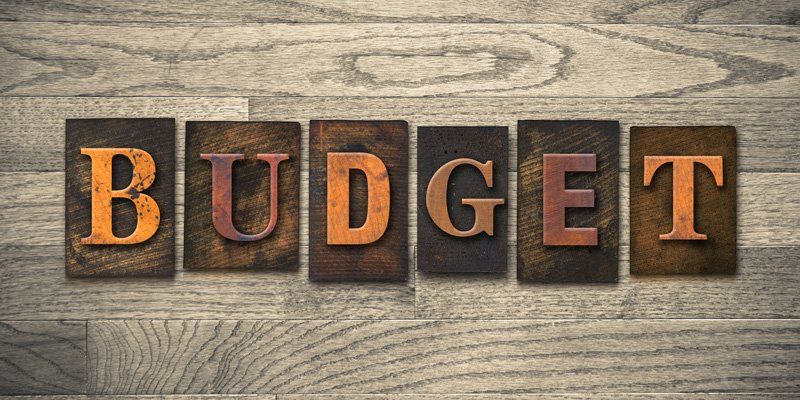The Budgeting Resource Everyone Has (And Nobody Uses)
This article was written by Sandi Martin of Spring Personal Finance and was originally published here on Spring The Blog on Oct. 27th 2015.
Does This Sound Familiar?
You’ve read a book or a blog series or watched a show about budgeting and getting your money under control. You’re all fired up, ready to really get it together, and get to work on that budget. The first few lines are easy:
Monthly net income? Read it off the paycheque, check.
Mortgage payment? Burned in the memory, check. Oh, man. This budgeting stuff is easy.
Groceries? Uh…well, we usually shop once a week (unless we forgot something) and it usually comes in between $120-$180…I’ll put $150.
Clothing? Oh, man. I don’t know, $50? Except in September, when the kids go back to school, and October when their feet maliciously grow and we have to buy new running shoes with only one month until the snow falls…and April, when we realize it’s too warm for winter coats and too cold for sweaters…
Entertainment? Erm…let’s say $10. I dunno, do late charges at the library count?
When the time comes to “stick to the budget” and that budget is just a series of made up numbers, what happens?
Or This?
You take the advice most people are offering about controlling your spending: you begin to track your income. You get a notebook and a pen, and you write down every penny you spend, every day. Until Thursday comes along, and you’re so busy that you just keep the receipts in the book, because you know you’ll have time on Friday and you’ll remember, but Friday becomes Saturday two weeks later, and you’re sitting in front of a pile of little pieces of paper, trying to forensically reconstruct seventeen days of spending and hoping that missing the two pocketfuls of receipts that went through the wash won’t screw you up too much.
Maybe, instead of the notebook or spreadsheet, you signed up for Mint or Quicken or YNAB instead, and you faithfully input or categorize all of your spending for almost a month. And then suddenly your checking account (according to the program) has $1,315.92 in it, when your checking account (according to reality) has $541.01. And you can’t find the mistake.
When your books are a mess and you actually have no idea how closely you’ve been “sticking to the budget”, what happens?
Protip: Use What You Already Have to Start Budgeting Well
Look, these things happen, even to someone who ::cough:: has been tracking her transactions and living on a spending plan for ::coughtenyearscough:: But when one of these is your first experience with the whole budgeting thing, it can very, very easily be your last. Or your last for a while.
I truly don’t understand why the inevitable advice for first-timers is always A) write out a budget and/or B) track your spending. The only people who won’t get lost in the land of 78 spending categories and account reconciliation are the ones who probably wouldn’t have needed to read the book or watch the TV show to get themselves organized, and were going to be fine anyway.
The frustration goes away with time and practice, it really does. Any budgeting system will work if you give yourself enough time to learn and adapt to it, honestly. But why go through all the aggravation of trying to live by a guess-timated budget if you don’t have to?
If you’re convinced that some part of budgeting is worth doing, then the first place to start isn’t how you’re going to spend in the future; it’s how you’ve already spent in the past.
You have years worth of data lying dormant in your bank and credit card history as we speak – a complete picture of how you spent your money when you weren’t paying attention, and accessing it is as simple as downloading a good sample size to a spreadsheet, sorting them out, and adding them up.
Easy For Me To Say
This is one of those pieces of advice that could very easily become that “just” advice that I hate so much.
“Just” is the dirtiest four-letter word in personal finance. “Just” DIY/”Just” cook at home, etc. #CPFC15
— Sandi Martin (@SandiMartinSPF) October 18, 2015
I use spreadsheets every day (and love every minute of it) so this is an easy thing for me to do and recommend. If you don’t speak spreadsheet very fluently, this exercise might be as frustrating as trying to guess how much you’re going to spend on clothes in the next _insert arbitrary period of time here_.
But, like most things prefaced with “just”, it might be worth your time and effort to try. If you have even a passing familiarity with rows, columns, and cells, and know how to use the “sort” function, examining your past spending in aggregate is a good way to set yourself up for success with your future spending .
Why start with a guess when you can start with data?
Note: Some readers have mistakenly read this as a recommendation to use spreadsheets to track ongoing spending, to which I can only say: please don’t use spreadsheets to track your spending unless you’re a confirmed spreadsheet ninja. /PSA
Katherine Martin
Origin Mortgages
Phone: 1-604-454-0843
Email: kmartin@planmymortgage.ca
Fax: 1-604-454-0842
RECENT POSTS







